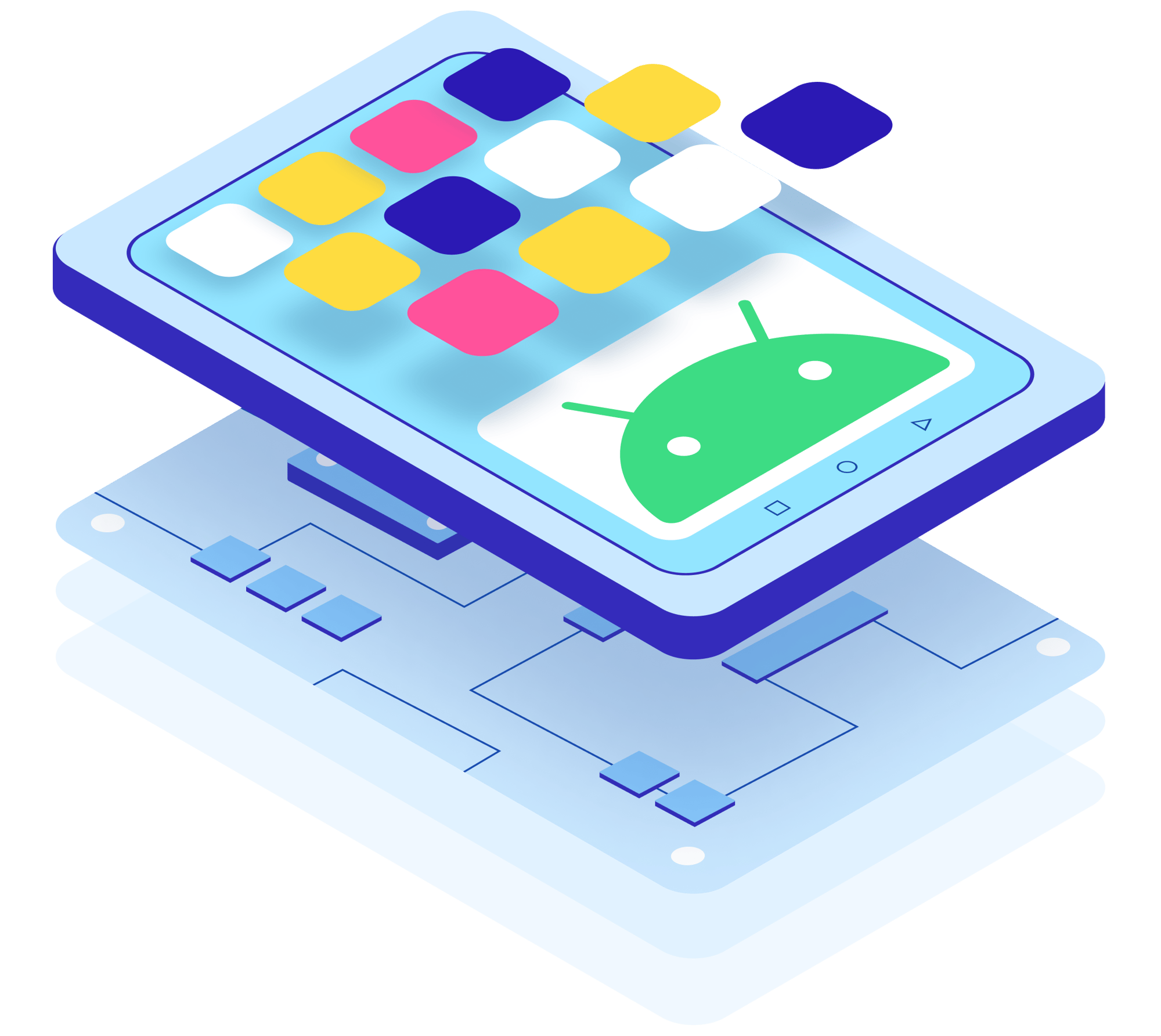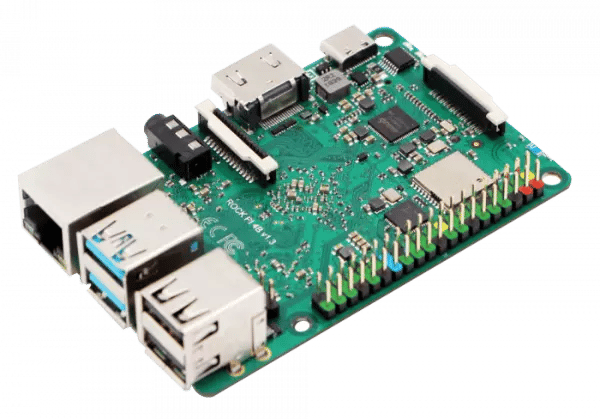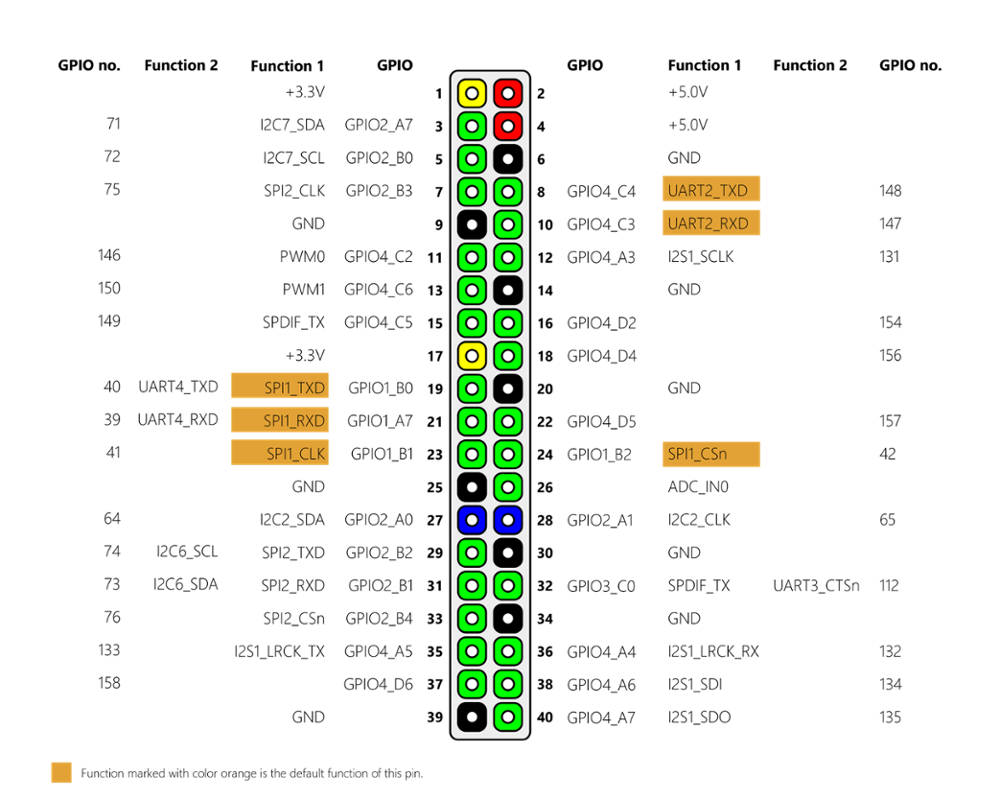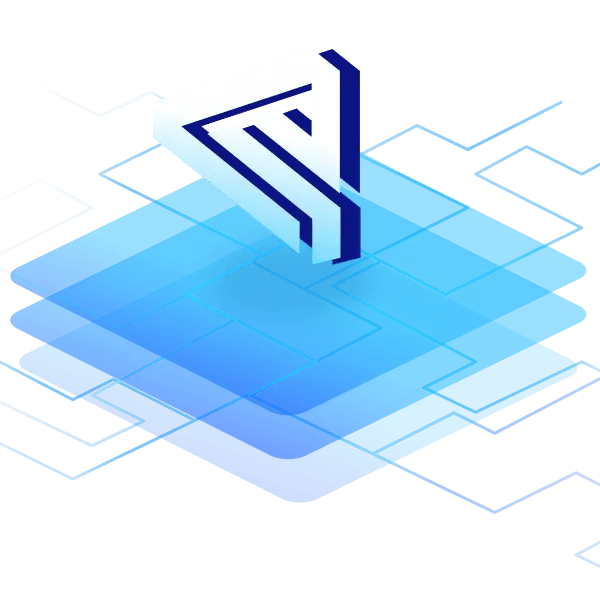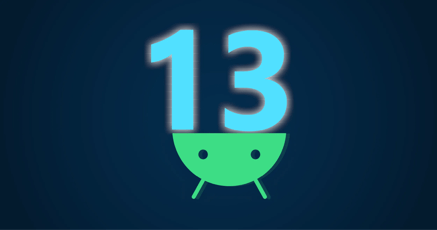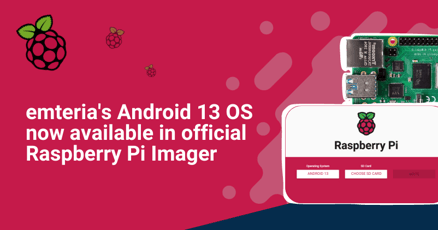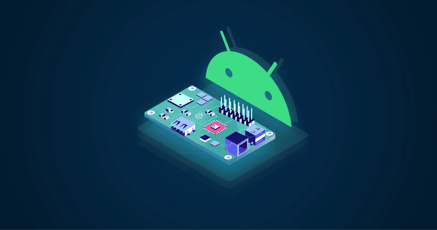The ROCK Pi 4 is a powerful Single Board Computer (SBC) with strong similarities to the Raspberry Pi 3 and Raspberry Pi 4. Android can be installed on a ROCK Pi 4 so long as the Android image being used has been specifically built to run on the SBC.
The ROCK Pi 4B has best-in-class performance and so developers with a need for more powerful computing often go for ROCK Pi Android instead of installing Android on a Raspberry Pi.
The ROCK Pi 4 has a Hexa-core processor — the Rockchip RK3399 — that is ARM-based. Its Mali™-T860MP4 GPU has four cores and an incredible clock speed of 600 MHz which makes this an impressive device for running ROCK Pi Android.
There is no official ROCK Pi Android version supported or certified by Google but certain options exist to run Android on these SBCs.
Before we delve into the ROCK Pi Android options that exist, let's take a deeper look at the ROCK Pi models themselves.
Comparison between ROCK Pi 4 Models A and B
The ROCK Pi 4 Model A is the basic version of the ROCK Pi 4 and comes with a Rockchip RK3399 and an Ethernet port. It has no WiFi and Bluetooth which will limit the possible fields of application.
The Model B comes with WiFi, Bluetooth, and optional Power over Ethernet (PoE). This model is better suited for a wide range of use cases, including those running ROCK Pi Android.
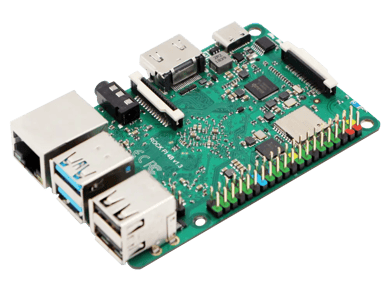
Image: ROCK Pi 4
Both models come in versions of 1 GB, 2 GB, or 4 GB DDR4 RAM. They are both sporting a dual-core Cortex-A72 + quad-core Cortex-A53 ARM processor. A popular option is the ROCK Pi 4B with 4 GB RAM.
Radxa Ltd., the ROCK Pi manufacturer, also produces a ROCK Pi 4C and a ROCK Pi 4C+ model.
ROCK Pi an excellent choice for power users
ROCK Pi 4 is a powerful developer board. It has a strong CPU and GPU performance. Because it has many different ports, developers can plug in several peripherals. ROCK Pi Android can then interact with these peripherals, assuming these are supported by the corresponding drivers.
Another advantage of the ROCK Pi 4 is that it has expanded connectivity for USB-connected storage devices. The ROCK Pi supports eMMC and M.2 SSD whereas the Raspberry Pi only has micro-SD card ports. eMMC and M.2 SSD are much faster than micro-SD and also more reliable. Radxa produces a number of add-ons for the board such as a heat sink as well as the module adding eMMC.
The popular ROCK Pi 4B model has a Gigabit Ethernet Port, three USB ports (1 x USB 3.0 and 2 x USB 2.0), and an output for HDMI. It also has an analog audio output, MIPI Display Serial Interface (MIPI DSI), and a MIPI Camera Serial Interface (MIPI CSI). ROCK Pi 4 Android 4K is supported on the B model.
Besides the tech specs already mentioned, the board comes with a colorful 40-pin GPIO pinout and offers detailed schematics for the ROCK Pi 4 to learn more about the SBCs hardware design.
Image: ROCK Pi 4 GPIO pinout
Software for ROCK Pi
There are official ROCK Pi Android and ROCK Pi Linux distributions provided by Radxa.
ROCK Pi Android
Official ROCK Pi 4 Android distributions for models A and B exist for:
- ROCK Pi 4 Android 7 (DSI 480P; HDMI 4K)
- ROCK Pi 4 Android 9 (HDMI 4K)
- ROCK Pi 4 Android 10 (HDMI 4K)
- ROCK Pi 4 Android 11 (HDMI 4K)
ROCK Pi 4 Android TV is also officially available from Radxa.
Besides the official distributions, there is emteria.OS, an embedded Android ROM designed for fast and reliable deployment of embedded devices. The ROCK Pi 4 Model A and B is supported by emteria.OS based on Android 11. Emteria's Android built can also run on ROCK Pi 4 Model C and ROCK Pi 4 Model C+ on request.
ROCK Pi Linux
If you want to install Linux instead, the official Linux distributions that run on the ROCK Pi 4A and 4B are:
- Ubuntu Server 20.04 (Linux 5.10)
- Ubuntu Server 20.04 (Linux 4.4)
- Debian Buster Desktop (Linux 5.10)
- Debian Buster Desktop (Linux 4.4)
Third-party images
Several third-party and community-built images are available for ROCK Pi 4, such as:
✔️ FreeBSD
✔️ Emteria.OS
✔️ OPNsense 21.1
✔️ DietPi (based on Debian Bullseye)
Which ROCK Pi 4 Android version to choose?
Android is an excellent choice as a ROCK Pi OS for anyone who is looking for a good UX/UI. This is especially true for touchscreen use cases. Android also has an enormous development community and tons of apps that add to its value.
There are several factors to consider when choosing a ROCK Pi 4 Android version for scalable professional applications instead of private projects. These include:
Stability
Update ability
Remote management
(Optional) Enterprise Support
Official Android versions provided by hardware producers tend to be stable and have stronger support, but they lack infrastructure for Over-the-Air software updates, remote management functionality, and enterprise support.
These versions are a good choice for companies with a large Android developer team in-house, who have the knowledge and resources to build and maintain a reliable and secure OTA infrastructure.
And of course, they are also great for personal use, provided you're willing to carry out your own updates by flashing a new image every time you want to upgrade and then having to reconfigure your device manually.
Emteria.OS is a ROCK Pi Android version that has been built to support both enterprise-level use and personal use. The OS is regularly maintained and has a dedicated team working on it to ensure it remains up to date.
Installing emteria.OS is a once-off job, so companies can do faster prototyping, testing and deployment. In addition to emteria’s OTA infrastructure which keeps devices running Android up to date, emteria's cloud-based Device Hub lets you remotely manage all your ROCK Pi Android devices in one place.
ROCK Pi 4 Android Download
To install one of the official or third-party ROCK Pi 4 Android distributions, you can go to Radxa's official download page.
To download emteria.OS, register with emteria and choose the version you require. The emteria installer is simple to use and does not need additional knowledge to flash images onto your device.
After installing the OS on an SD card, you can configure it and then perform a ROCK Pi 4 Android reboot for all the settings to take effect.
Troubleshooting ROCK Pi Android common problems
Is your Android image for ROCK Pi 4 not turning on?
Creating ROCK Pi 4 Android images can be a complicated process even for experienced developers. Emteria.OS is simple to use and does not require special knowledge to install. Simply download emteria.OS and follow the instructions. Your ROCK Pi 4 should then turn on easily, running Android.
Lacking an Android Google Play certificate for ROCK Pi 4?
The ROCK Pi 4 distributions do not come with a Google Mobile Services (GMS) certificate, which is what lets you run the Google Play Store.
This is not a problem because open-source app stores such as F-Droid can be installed easily on ROCK Pi Android. Through F-Droid, many popular open-source apps can be downloaded securely and used on your ROCK Pi Android device.
ROCK Pi Android and Raspberry Pi?
Raspberry Pi users often upgrade to a ROCK Pi device once they hit the Raspberry Pi's limitations. The good news is that emteria.OS works both as a Raspberry Pi Android as well as a ROCK Pi Android operating system for Radxa ROCK 4B and Radxa ROCK 5B. Users simply download one version of emteria.OS and can then install ROCK Pi Android or the Raspberry Pi version as needed.
The ROCK Pi family (e.g. Radxa ROCK 3C, Radxa ROCK 5B and 4B) is the flagship product of Radxa and has several features that Raspberry Pi users sorely miss, such as a stable power supply, faster LAN and mass storage, and several additional features.
Sure, the Raspberry Pi is much cheaper, but the old saying that "you get what you pay for" is true. This is not to say that the Raspberry Pi is a poor device — it certainly isn't. We love the Raspberry Pi and wouldn't want to miss it! But the ROCK Pi is simply more powerful and *currently* often easier to procure.
How to get started with ROCK Pi Android
The ROCK Pi is a solid hardware configuration that lets users create robust devices for both personal and enterprise use. ROCK Pi Android support comes out of the box with emteria.OS.
Users can simply download ROCK Pi Android from emteria's website and install it easily.
Get started with installing ROCK Pi 4 Android OS. ⬇️
Power your ROCK with Android
Save your free Android OS starter plan with all features and no time limit — build custom Android products powered by ROCK SBCs.
No credit card required.
